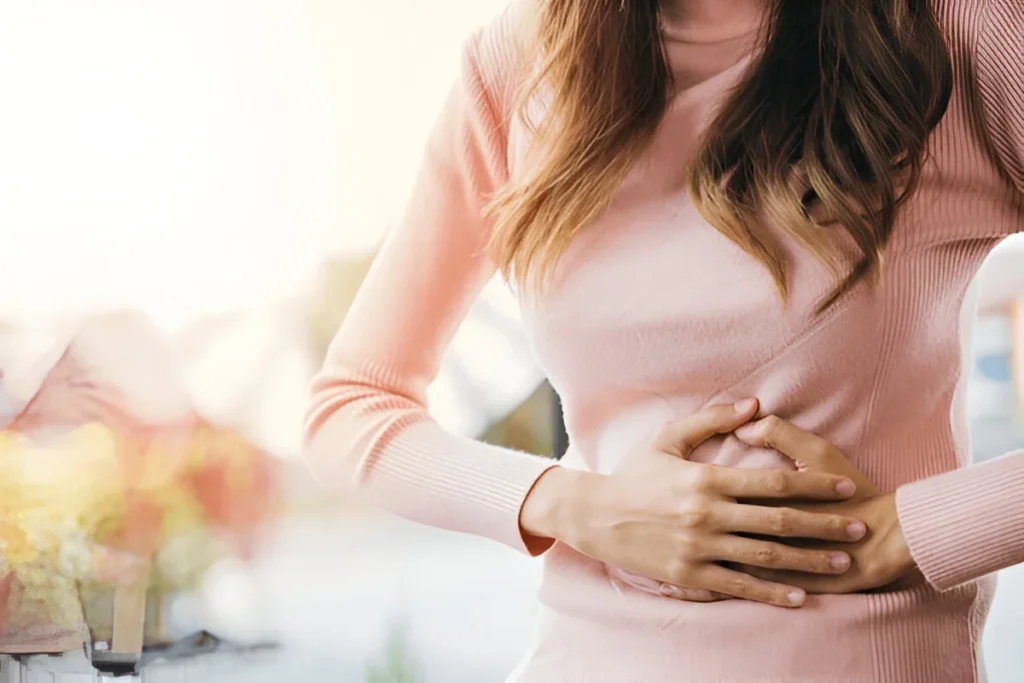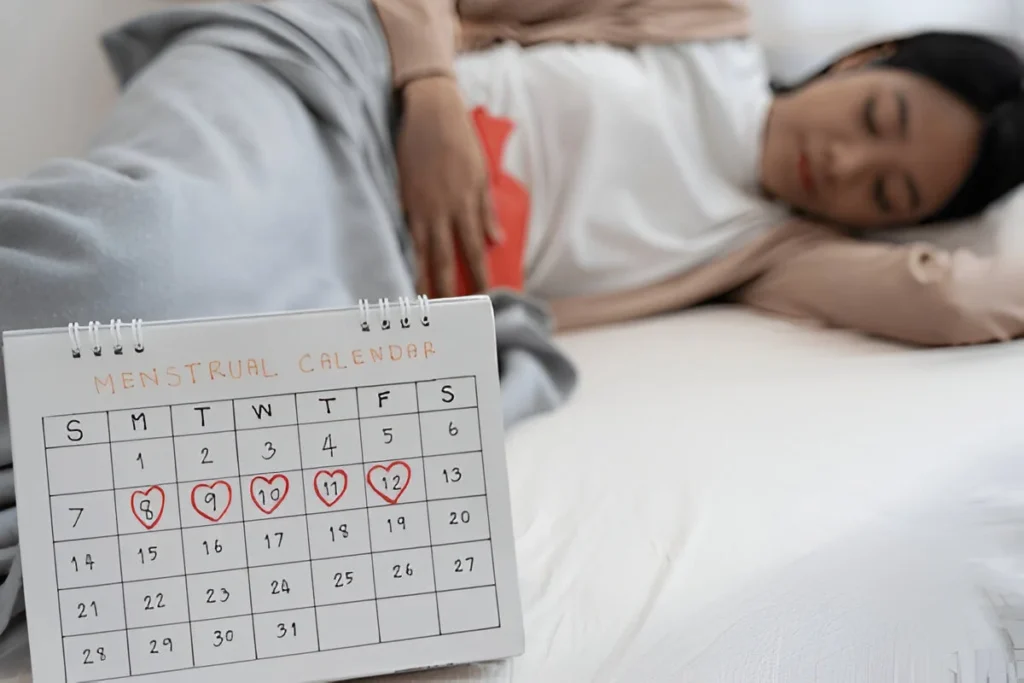-
UNITED HEALTH CENTRE 2,ELLIOT ROAD, KOLKATA - 700016
UNITED HEALTH CENTRE 2,ELLIOT ROAD, KOLKATA - 700016

Menstrual cramps can disrupt daily life. Discover simple lifestyle tips from a reputed gynecologist to ease the pain naturally and stay active.
Menstrual cramps, also known as dysmenorrhea, affect millions of women every month. For some, it’s a mild discomfort they can ignore. For others, the pain can be so intense that it interferes with their work, studies, or daily responsibilities.
Cramps occur when the uterus contracts to shed its lining, releasing hormone-like substances called prostaglandins. Higher levels of prostaglandins are linked to stronger uterine contractions and, consequently, more pain.
It’s important to note that while mild cramps are common, severe or persistent pain could signal an underlying issue like endometriosis or fibroids.
So, how can you find relief without relying solely on painkillers?

Sometimes, small lifestyle adjustments can provide significant relief and even prevent cramps from worsening over time.
It might sound counterintuitive to move when you’re in pain, but light exercise can work wonders.
Pro Tip: Avoid high-intensity workouts during heavy flow days as they can make you feel more fatigued.
Heat is one of the oldest remedies for menstrual pain, and for good reason.
What you eat can directly affect how your body responds during menstruation.
Hydration plays a surprisingly important role in managing menstrual cramps.
Your mental and emotional state can impact how you experience pain. Stress hormones like cortisol can amplify discomfort.
Pro Tip: Establish a calming bedtime routine during your menstrual cycle to promote deeper sleep and pain relief.
While these lifestyle changes can help most women, there are times when cramps may signal something more serious.
The best lady gynecologist in Kolkata can help identify and treat underlying conditions like:
Early diagnosis and treatment are key to improving your quality of life.

1. Why do menstrual cramps vary from month to month?
Hormonal fluctuations, stress levels, and dietary changes can all influence how severe your cramps feel each cycle.
2. Can birth control pills reduce cramps?
Yes, hormonal contraceptives often reduce prostaglandin production, leading to milder cramps. Discuss this option with your gynecologist.
3. Are home remedies safe for teenagers with menstrual cramps?
Generally, yes. However, it’s wise to consult a healthcare provider if the cramps are severe or interfere with school or activities.
4. Is it normal to have cramps after menstruation ends?
No. Persistent pain after your period should be evaluated by a gynecologist to rule out conditions like endometriosis.
5. How long should menstrual cramps last?
Mild cramps typically last 1–3 days. Longer or worsening pain may need medical attention.
If lifestyle adjustments don’t provide enough relief, consulting an experienced gynecologist is the best next step.
An expert like Dr. Saima Javed, a professional gynecologist, offers personalized care to address both common and complex menstrual health concerns. From advanced diagnostic tools to effective treatment plans, professional support can help you regain control of your cycle and live pain-free.
Menstrual cramps may feel inevitable, but you don’t have to suffer in silence. With simple lifestyle changes like exercise, diet adjustments, stress management, and hydration, you can significantly ease the pain and improve your menstrual health.
However, if your cramps are severe, frequent, or interfere with your life, don’t hesitate to seek expert care. By listening to your body and taking proactive steps, you can enjoy greater comfort and confidence every month.